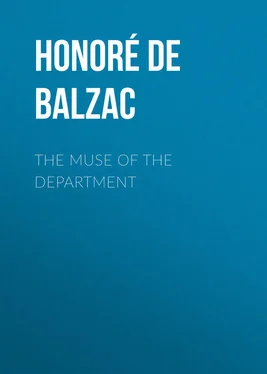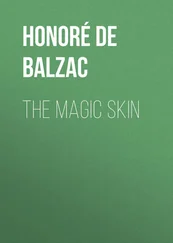Honoré Balzac - The Muse of the Department
Здесь есть возможность читать онлайн «Honoré Balzac - The Muse of the Department» — ознакомительный отрывок электронной книги совершенно бесплатно, а после прочтения отрывка купить полную версию. В некоторых случаях можно слушать аудио, скачать через торрент в формате fb2 и присутствует краткое содержание. Жанр: literature_19, foreign_antique, foreign_prose, на английском языке. Описание произведения, (предисловие) а так же отзывы посетителей доступны на портале библиотеки ЛибКат.
- Название:The Muse of the Department
- Автор:
- Жанр:
- Год:неизвестен
- ISBN:нет данных
- Рейтинг книги:4 / 5. Голосов: 1
-
Избранное:Добавить в избранное
- Отзывы:
-
Ваша оценка:
- 80
- 1
- 2
- 3
- 4
- 5
The Muse of the Department: краткое содержание, описание и аннотация
Предлагаем к чтению аннотацию, описание, краткое содержание или предисловие (зависит от того, что написал сам автор книги «The Muse of the Department»). Если вы не нашли необходимую информацию о книге — напишите в комментариях, мы постараемся отыскать её.
The Muse of the Department — читать онлайн ознакомительный отрывок
Ниже представлен текст книги, разбитый по страницам. Система сохранения места последней прочитанной страницы, позволяет с удобством читать онлайн бесплатно книгу «The Muse of the Department», без необходимости каждый раз заново искать на чём Вы остановились. Поставьте закладку, и сможете в любой момент перейти на страницу, на которой закончили чтение.
Интервал:
Закладка:
Her patience and her resignation alike broken by the departure of the Vicomte de Chargeboeuf, Dinah took the worthy Abbe’s advice to exhale her evil thoughts in verse – a proceeding which perhaps accounts for some poets.
“You will find such relief as those who write epitaphs or elegies over those whom they have lost. Pain is soothed in the heart as lines surge up in the brain.”
This strange production caused a great ferment in the departments of the Allier, the Nievre, and the Cher, proud to possess a poet capable of rivalry with the glories of Paris. Paquita la Sevillane , by Jan Diaz , was published in the Echo du Morvan , a review which for eighteen months maintained its existence in spite of provincial indifference. Some knowing persons at Nevers declared that Jan Diaz was making fun of the new school, just then bringing out its eccentric verse, full of vitality and imagery, and of brilliant effects produced by defying the Muse under pretext of adapting German, English, and Romanesque mannerisms.
The poem began with this ballad:
Ah! if you knew the fragrant plain,
The air, the sky, of golden Spain,
Its fervid noons, its balmy spring,
Sad daughters of the northern gloom,
Of love, of heav’n, of native home,
You never would presume to sing!
For men are there of other mould
Than those who live in this dull cold.
And there to music low and sweet
Sevillian maids, from eve till dawn,
Dance lightly on the moonlit lawn
In satin shoes, on dainty feet.
Ah, you would be the first to blush
Over your dancers’ romp and rush,
And your too hideous carnival,
That turns your cheeks all chill and blue,
And skips the mud in hob-nail’d shoe —
A truly dismal festival.
To pale-faced girls, and in a squalid room,
Paquita sang; the murky town beneath
Was Rouen whence the slender spires rise
To chew the storm with teeth.
Rouen so hideous, noisy, full of rage —
And here followed a magnificent description of Rouen – where Dinah had never been – written with the affected brutality which, a little later, inspired so many imitations of Juvenal; a contrast drawn between the life of a manufacturing town and the careless life of Spain, between the love of Heaven and of human beauty, and the worship of machinery, in short, between poetry and sordid money-making.
Then Jan Diaz accounted for Paquita’s horror of Normandy by saying:
Seville, you see, had been her native home,
Seville, where skies are blue and evening sweet.
She, at thirteen, the sovereign of the town,
Had lovers at her feet.
For her three Toreadors had gone to death
Or victory, the prize to be a kiss —
One kiss from those red lips of sweetest breath —
A longed-for touch of bliss!
The features of the Spanish girl’s portrait have served so often as those of the courtesan in so many self-styled poems , that it would be tiresome to quote here the hundred lines of description. To judge of the lengths to which audacity had carried Dinah, it will be enough to give the conclusion. According to Madame de la Baudraye’s ardent pen, Paquita was so entirely created for love that she can hardly have met with a knight worthy of her; for
… In her passionate fire
Every man would have swooned from the heat,
When she at love’s feast, in her fervid desire,
As yet had but taken her seat.
“And yet she could quit the joys of Seville, its woods and fields of orange-trees, for a Norman soldier who won her love and carried her away to his hearth and home. She did not weep for her Andalusia, the Soldier was her whole joy… But the day came when he was compelled to start for Russia in the footsteps of the great Emperor.”
Nothing could be more dainty than the description of the parting between the Spanish girl and the Normandy Captain of Artillery, who, in the delirium of passion expressed with feeling worthy of Byron, exacted from Paquita a vow of absolute fidelity, in the Cathedral at Rouen in front of the alter of the Blessed Virgin, who
Though a Maid is a woman, and never forgives
When lovers are false to their vows.
A large part of the poem was devoted to describing Paquita’s sufferings when alone in Rouen waiting till the campaign was over; she stood writhing at the window bars as she watched happy couples go by; she suppressed her passion in her heart with a determination that consumed her; she lived on narcotics, and exhausted herself in dreams.
Almost she died, but still her heart was true;
And when at last her soldier came again,
He found her beauty ever fresh and new —
He had not loved in vain!
“But he, pale and frozen by the cold of Russia, chilled to the very marrow, met his yearning fair one with a melancholy smile.”
The whole poem was written up to this situation, which was worked out with such vigor and boldness as too entirely justified the Abbe Duret.
Paquita, on reaching the limits set to real love, did not, like Julie and Heloise, throw herself into the ideal; no, she rushed into the paths of vice, which is, no doubt, shockingly natural; but she did it without any touch of magnificence, for lack of means, as it would be difficult to find in Rouen men impassioned enough to place Paquita in a suitable setting of luxury and splendor. This horrible realism, emphasized by gloomy poetic feeling, had inspired some passages such as modern poetry is too free with, rather too like the flayed anatomical figures known to artists as ecorches . Then, by a highly philosophical revulsion, after describing the house of ill-fame where the Andalusian ended her days, the writer came back to the ballad at the opening:
Paquita now is faded, shrunk, and old,
But she it was who sang:
“If you but knew the fragrant plain,
The air, the sky, of golden Spain,” etc.
The gloomy vigor of this poem, running to about six hundred lines, and serving as a powerful foil, to use a painter’s word, to the two seguidillas at the beginning and end, the masculine utterance of inexpressible grief, alarmed the woman who found herself admired by three departments, under the black cloak of the anonymous. While she fully enjoyed the intoxicating delights of success, Dinah dreaded the malignity of provincial society, where more than one woman, if the secret should slip out, would certainly find points of resemblance between the writer and Paquita. Reflection came too late; Dinah shuddered with shame at having made “copy” of some of her woes.
“Write no more,” said the Abbe Duret. “You will cease to be a woman; you will be a poet.”
Moulins, Nevers, Bourges were searched to find Jan Diaz; but Dinah was impenetrable. To remove any evil impression, in case any unforeseen chance should betray her name, she wrote a charming poem in two cantos on The Mass-Oak , a legend of the Nivernais:
“Once upon a time the folks of Nevers and the folks of Saint-Saulge, at war with each other, came at daybreak to fight a battle, in which one or other should perish, and met in the forest of Faye. And then there stood between them, under an oak, a priest whose aspect in the morning sun was so commanding that the foes at his bidding heard Mass as he performed it under the oak, and at the words of the Gospel they made friends.” – The oak is still shown in the forest of Faye.
This poem, immeasurably superior to Paquita la Sevillane , was far less admired.
After these two attempts Madame de la Baudraye, feeling herself a poet, had a light on her brow and a flash in her eyes that made her handsomer than ever. She cast longing looks at Paris, aspiring to fame – and fell back into her den of La Baudraye, her daily squabbles with her husband, and her little circle, where everybody’s character, intentions, and remarks were too well known not to have become a bore. Though she found relief from her dreary life in literary work, and poetry echoed loudly in her empty life, though she thus found an outlet for her energies, literature increased her hatred of the gray and ponderous provincial atmosphere.
Читать дальшеИнтервал:
Закладка:
Похожие книги на «The Muse of the Department»
Представляем Вашему вниманию похожие книги на «The Muse of the Department» списком для выбора. Мы отобрали схожую по названию и смыслу литературу в надежде предоставить читателям больше вариантов отыскать новые, интересные, ещё непрочитанные произведения.
Обсуждение, отзывы о книге «The Muse of the Department» и просто собственные мнения читателей. Оставьте ваши комментарии, напишите, что Вы думаете о произведении, его смысле или главных героях. Укажите что конкретно понравилось, а что нет, и почему Вы так считаете.












